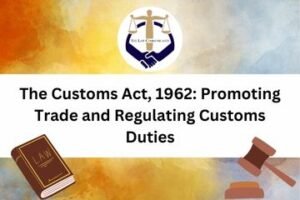Political Prisoners and Human Rights
Written by: Ms Ashima Mishra
Introduction
The establishment of prison and jail form an important part of society. They remind the citizens that if a crime is committed or any wrong is done which hampers the lives of others and the peace of society then they shall be imprisoned. Prisons have been existing in every society for many decades. It is meant for those who are detained until they undergo the legal process. A prisoner may be defined as a person who is deprived of his liberty against his will. He is kept in a custody especially before a legal process and as well when he is convicted for a crime or offence.
Again there is a classification made for the kind of prisoner, and one of them is called political prisoner who are detained because of their actions contrary to the government of the country.
Who is Political Prisoner?
Generally, Political prisoners refer to that person who has been imprisoned for his negative remarks on the government. It clearly means those who oppose or criticize the government of their countries is detained and considered as political prisoner.
Those persons are arrested because their activities are found contrary to that of the government. Though political prisoners are also criminals but their activities are different from the common criminals. The political prisoners are involved in a struggle against the ruling party of the government of a country whereas the common criminals commit offences for their self-motive.
Various Definitions
Many definitions were made to define the meaning of the term political prisoners and some of them were:
- The Parliamentary Assembly of the Council of Europe defined political prisoner as “A person who has been deprived of his personal liberty.” They also listed some of the reasons by stating how the detention is violating the right of a person:
- It violates the freedom of thought, conscience and religion; freedom of expression and information; freedom of assembly and association.
- Detaining a person for political reason is violating his right to liberty.
- Amnesty International defined the term political prisoner as “the prisoner of conscience.”
- Some of the thinkers also linked political prisoners with terrorism. They stated that if they opposed the government they are termed as ‘terrorists’.
Famous Political Prisoners of the World
- Aung San Suu Kyi- A very famous politician, author and Nobel Prize Winner who hailed from Burma. She was imprisoned and was also kept under house arrest because of leading the opposition party, ‘National League for Democracy’.
- Mahatma Gandhi- In the year 1907, Gandhiji was arrested for two months in South Africa, because he took a lead in abolishing discrimination against Indian People in South Africa. The reason of his detention was that he avoided to obey the law which required the Indian people to get registered and fingerprints for the purpose of identification.Apart from this, he was arrested for many times for supporting the movement against the British Government.
- Martin Luther King Jr. – He was an admirer of Gandhiji and the Gandhian dictum. His political campaigning took full force with the Rose Park bus incident in the year 1955. This incident led to a non-violent boycott of the buses is Montgamary. While struggling for racial equality, Martin was arrested for 30 times.
- Ho Chi Minh-In the year 1940, he visited China to gain support from Chiang Kai-Shek’s nationalist government for struggling against the French Colonialism. He was arrested for around 18 months.
- Andrei Sakharon- He was a famous Soviet nuclear physicist who was also a human rights campaigner. In the year 1975, when he was about to received the Nobel Prize
- Jawaharlal Nehru- The first prime minister of India was also not deprived of being called as a political prisoner for his struggle to fight against the British Government in the Country. He was arrested for breaking the salt laws in 1930. Again for speaking in the public gathering against the Britishers, he was charged with sedition and was imprisoned for two years. He has suffered the imprisonment in his whole life for about nine years.
- Akbar Ganji- Mr. Ganji was a famous yet controversial journalist of Iran. When he wrote an article on the investigation of a series of murder which was committed in Iran. This came to be known as “The Chain of Murder.” For this, he was arrested for six years in the year 2000.
There were many other people who were considered political prisoners and were imprisoned because of their remarks on the ruling party and the government of the country.
What are the Grounds to be Convicted as a Political Prisoner?
There are various grounds that are needed to fulfil the criteria of being considered as a political prisoner and they are as follows: –
- A person to be called as a political prisoner must be supported by prime facie evidence.
- The state is bound to prove that the arrest has been made in compliance with the international human rights standards and violation of any right.
- The imprisonment must be done by having a fair trial.
What is Human Rights?
Human Rights may be defined as those rights which includes the basic requirement and freedoms of every person across the world. This right begins from birth to death. It is available for each and every human being irrespective of caste, creed, race, colour, gender, place of birth, religion, or any other status. When a person finds that his right to life and liberty, freedom of slavery, freedom to give an opinion, as well to express, his right to work and to get proper education is violated then it is a clear violation of human rights.
Human rights cannot be denied to any person and it is equally available to each and every human being. In the beginning, these rights did not carry any legality. Rather, they were treated as moral claims. Gradually, these rights were formally recognized and protected by the rule of law. Sometimes, human rights have been also safeguarded in a country’s constitution, frequently in the form of a bill. Apart from that, many independent courts were set up in which individuals sought redressal whose rights had been taken away.
There is international human rights law that creates many rules and regulations so that the utmost importance is given for the upliftment of human rights. As it is known to all that the United Nations Organisation has been established to maintain peace and to look after the welfare of the entire world. This also includes human rights. The United Nations has set a rule which also contains and defines various rights, which includes civil, cultural, economic, political, and social rights which together constitute a human right.
Gradually the aspects of human rights changed with the transition of time. The foundation of the UN which is also called the United Nations Charters and the Universal Declaration of Human Rights which has been adopted by the General Assembly in the years 1945 and 1948 respectively.
So, the United Nations gradually expanded human rights by setting up special provisions for women community, children, disabled people, minorities and other vulnerable groups who now carry rights that protect them from discrimination that had long been prevailed in many societies.
In regard to this, there is much important document called the Universal Declaration of Human Rights which was drafted by representatives having different legal and cultural backgrounds and who could better understand the problems faced by the people at the underground level across the world.
Conventions on Human Rights
There are many international human rights treaties and other instruments adopted since 1945 that have expanded the body of international human rights law. These include the Convention on the Prevention and Punishment of the Crime of Genocide (1948), the International Convention on the Elimination of All Forms of Racial Discrimination (1965), the Convention on the Elimination of All Forms of Discrimination against Women (1979), the Convention on the Rights of the Child (1989) and the Convention on the Rights of Persons with Disabilities (2006), and many more.
PROBLEMS FACED BY THE UNDER-TRIAL PRISONERS:-
The detention of prisoners who are waiting for trial for years is a matter of special concern. Their situation is different from those people who have been convicted of an offence. As they are yet to be found guilty of any offence and that’s why they are innocent before the eyes of the law. In the majority of the nation, it has been witnessed that people in the prison are waiting for trial. The proportion sometimes reaches 60%.
Relationship between Political Prisoner and Human Rights.
There is a deep relationship between a political prisoner and human rights. A person becoming a political loses his human rights which is clearly reflected from the exploitation he suffers after being imprisoned. The following violation of human rights occurs with a political prisoner:
1. Restainment of Liberty:
This refers to the detention or imprisonment of a person at any place as if he or she is stopped from leaving it. A political prisoner is arrested because he tried to exercise his freedom of speech and expression for making people aware of a particular change in the country which has been taken place due to the existing government. He is coerced by the police, by the politicians, and by other higher authorities because he spoke against the government.
2. Social Exploitation:
The political prisoners are treated like animals. Once they are convicted, they are tortured like anything. Life imprisonment and death sentences become the only reasons they are made a life for. They are socially destroyed and are forced to live like a beast.
3. Political Exploitation:
The political prisoner is often subjected to severe political exploitation only because they spoke against the policies and rules made by the government.
This lead to their detention which is also a violation of basic human rights. They aren’t given a right to a fair trial most of the time. That’s why the International Covenant on Civil and Political Rights and the European Convention for the Protection of Human Rights and Fundamental Freedom have been established to protect their rights.
So all these reasons should be looked after properly as the political prisoners are also humans and they also need to be treated like humans.
CHARGES FRAMED AGAINST POLITICAL PRISONER UNDER THE INDIAN ACTS:
When any person is considered a political prisoner in a country, the basic charge framed against him is sedition. Under 124A of IPC, the term “sedition” has been defined. It states that whoever, by words, either spoken or written, or by signs, or by visible representation, or otherwise, brings or attempts to bring into hatred or contempt, or excite disaffection towards the government established by law in India.” The punishment for such an offence is fine or imprisonment of three years to life.
Similarly, under the Unlawful Activities Prevention Act, 1967, (UAPA), Many constitutional amendments have been made in the following legislation. It was enacted to impose by law, reasonable restrictions in the interests of the sovereignty and integrity of India on the following grounds:-
- Freedom of speech and expression;
- Right to assemble peacefully and without having any weapons and ammunitions;
- Right to create or form associations or unions.
The punishment for this offence is penalties which range from five years to life imprisonment along with fines. If the offence leads to loss of life, a death sentence can be given.
PRISONERS AND PRISON REFORMS IN INDIA
In India, the Prison reforms have been very limited and even today the prisoners inside the four walls of the prison are treated like an animal. The real motive behind sending a person to prison is not to treat him like an animal but to reform and convert him into a good person. It is a process of being inhumane to be a human.
Even the standard minimum rules of the United Nation for the treatment of prisoners also call for the dignified treatment of prisoners. The Supreme Court of India clears that a prisoner shall be treated with dignity and as a citizen having fundamental rights irrespective of their status.
Conclusion
Political Prisoners are also a part of our society, so they should be provided all those facilities which a common criminal would have been provided by the government. The court trials must be fair enough, they should be a chance to keep their point in the court of law and also they should be given proper defence by the government to fight their case. The concept of ‘the prosecution is the persecution’ should be changed.
References
- Human Rights and Prisons, Manual on Human Rights Training for Prison Official, UN, New York
- Social Justice, Freedom Now: Campaign for Amnesty and Human Rights for Political Prisoners
Keywords: Political Prisoners and Human Rights, Political Prisoners and Human Rights in India, Political Prisoners and Human Rights Law, Political Prisoners and Human Rights in Indian legal system
Previous Posts
Legal Issues Relating To Electronic Contract Under The Information Technology Act, 2000
Environmental Impact Assessment in India
Privatization Of Natural Resources: A Critical Threat To Sustainable Development
A Socio-legal study of the rights of traditional forest dwellers
Autism; A Socio-Legal Study On Mental Health Care Laws In India




